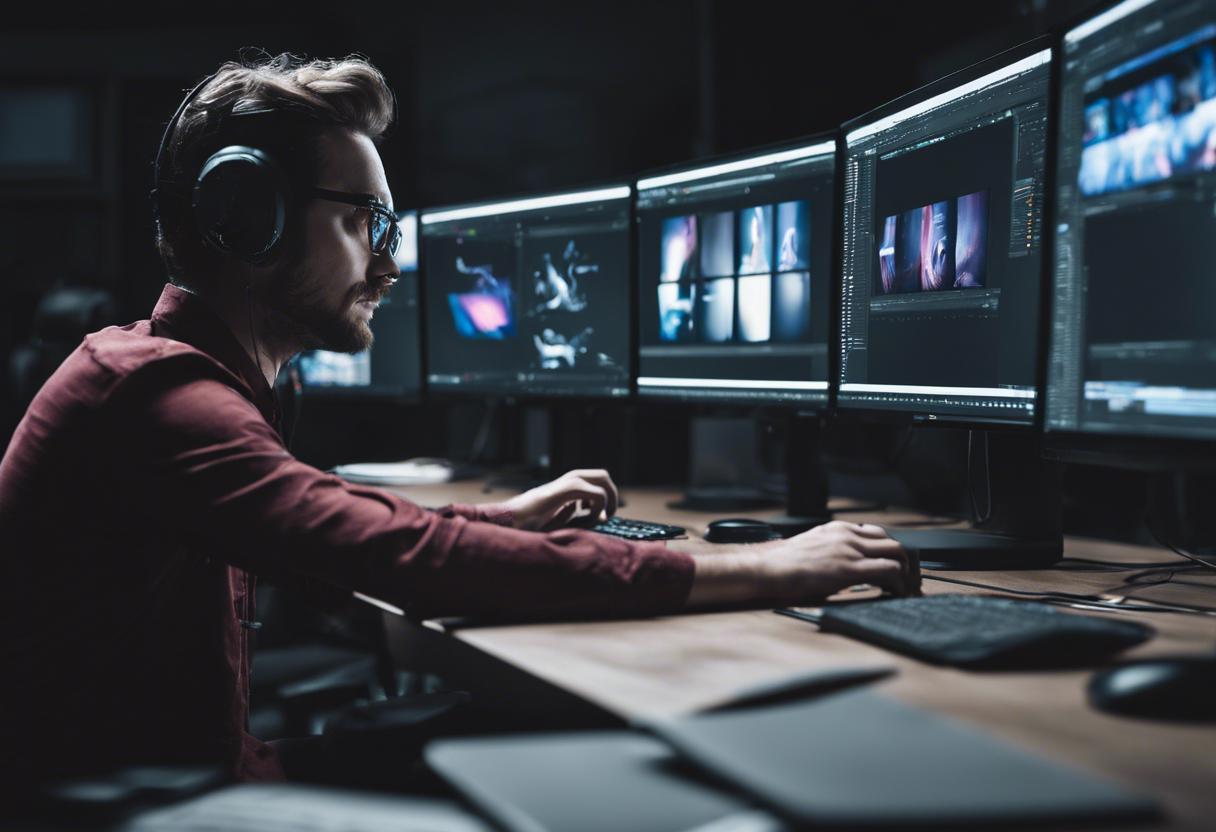Artificial Intelligence (AI) has become an integral part of our digital world, transforming various aspects of daily life. In this article, we explore how AI is revolutionizing multimedia editing and production skills. From simplifying workflows to enhancing creativity, AI offers a range of benefits for video editing, while also raising ethical considerations for the future. Join us as we delve into the exciting possibilities and challenges of harnessing AI in the world of multimedia.
The AI Revolution: Transforming Video Editing Workflows
AI has brought about a revolution in video editing workflows, transforming the way creators produce and edit multimedia content. By leveraging AI-powered tools, video editors can simplify their workflows and enhance productivity. Features like automated editing, color correction, and background removal have made the process faster and more efficient. AI tools also offer functionalities such as content organization, sound design, visual effects creation, subtitles generation, and workflow automation. These advancements not only save time but also improve the quality of the final videos. Integrating AI into video editing workflows requires understanding the capabilities and limitations of the software, selecting the right tools, and experimenting with different options. Overall, AI has significantly improved video editing processes and opened up new possibilities for content creators.
Balancing Automation with Creativity: A Harmonious Blend
In the realm of multimedia editing and production, striking a harmonious blend between automation and creativity is crucial. While AI technology offers numerous automated features that streamline workflows and enhance productivity, it is important not to rely solely on automation. Creativity plays a vital role in engaging audiences effectively and creating unique and compelling content. By leveraging AI tools for tasks like content organization, color correction, and workflow automation, editors can save time and focus on more creative aspects of their work. This balance allows for efficient production while still maintaining the human touch that brings depth and emotion to multimedia projects. Ultimately, finding the right equilibrium between automation and creativity is key to harnessing the full potential of AI in multimedia editing.
Future Prospects: Real-Time Enhancements and Ethical Considerations
Advancements in AI technology are set to revolutionize the future of video editing by introducing real-time enhancements. With the ability to analyze and process vast amounts of data instantaneously, AI can enhance video quality, adjust lighting, and even remove imperfections in real-time. This not only saves time during the editing process but also enables creators to deliver high-quality content to their audience more efficiently. However, as AI becomes more sophisticated, ethical considerations must be taken into account. Stricter regulations on deepfake technology are expected to be implemented to prevent malicious use, ensuring that AI is used responsibly and ethically. By striking a balance between harnessing AI’s capabilities and adhering to ethical guidelines, the future prospects of video editing look promising for both creators and viewers alike.
As AI continues to revolutionize multimedia editing and production, it is important for professionals to embrace its capabilities while maintaining a balance with human creativity. The future prospects of real-time enhancements and ethical considerations present exciting possibilities and challenges. Reflecting on the impact of AI in our lives, how can we ensure that technology serves as a tool for artistic expression rather than replacing it?
